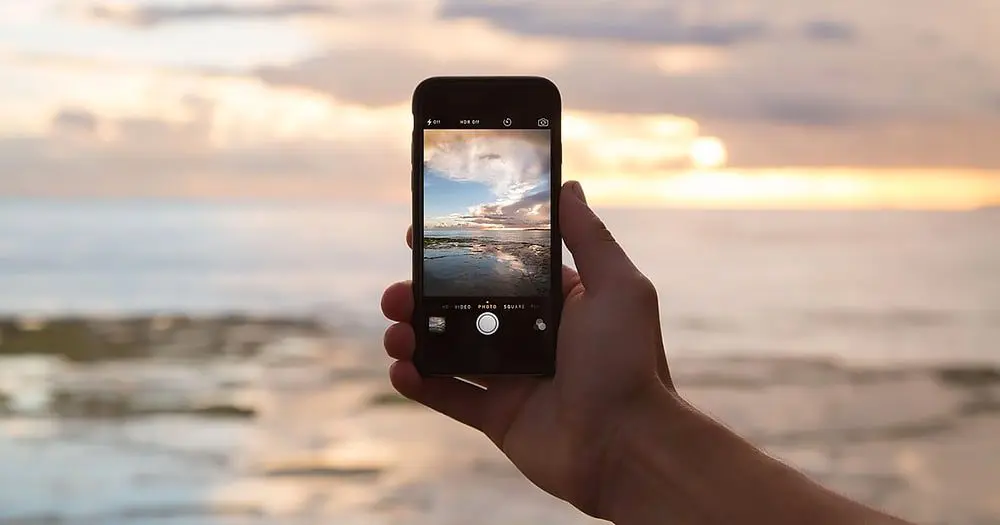It’s widely accepted that your brain needs you to switch off and disconnect from time to time. But what happens if you fail to do that?
The Virgin Group recently interviewed research psychologist Max Blumberg on how it all works, and the perils of not switching off.
It’s just another reason why travelling and getting outdoors – more often is the best thing for all of us.
Read on for the Q&A of all things connected and disconnected.
We’ve found out how addictive being online can be, but what happens if you don’t take time to disconnect?

Our brains will always be seduced by the high stimuli because of the dopamine that it provides. It’s really similar to having ADHD.
People with ADHD’s big problem is that their cortex – the outer part of your brain that does the executive function like making decisions – doesn’t function in the way that it is supposed to.
Unlike animals, who are distracted by every stimulus they encounter, human beings have the cortex, which is supposed to help them weigh up whether what they are currently doing is more important than whatever the new stimulus is – whether it’s a Facebook notification, phone call or email.
But people with ADHD lack that ability and that is what they take Ritalin for, to wake up their cortex so that it can become better at turning things off.
Yet here we are, voluntarily allowing ourselves to become overwhelmed by the amount of incoming stimuli by being constantly connected.
So what does that mean in the long term?

Keep a brain like Branson
The end result of all this, I think, is that you will become very reactive.
You won’t be able to do deep thinking and you won’t see things being built anymore.
To build a really cool company, like Virgin for example, Richard Branson needed a lot of deep thinking and a lot of focus, which he couldn’t have got if he had been always connected.
So he was able to do that because he was able to concentrate, turn away stimuli and spend tons of time developing his goal.
People will find it harder and harder to create a company like Virgin in the future. In fact, what I think we’re going to see is a society that is even more divided into the ‘haves’ and the ‘have not’s’.
And we’re already starting to see that the kids from richer backgrounds are really restricted in the amount of TV and internet that they are allowed to use because their parents who built these big companies know that that is what is required to be able to achieve such things, so those kids are going to end up building the big companies of the future.
And the kids from poorer backgrounds, who are online all the time and have a very reactive brain, will end up being the consumers and customers of the other kids’ companies.
There will be a huge market where people will buy anything because the brand is flashed up without having any critical thinking about it because their brains are not used to deep thinking.
That sounds pretty negative, how can we prevent that becoming a reality?

Look familiar?
It paints a negative picture for those people who are constantly connected, but it paints quite a rosy picture for those who are not. The ones who know the importance of disconnecting will end up being the bosses of those who are always online
But how do you stop it? How do you wean someone off that dopamine rush?
It’s a withdrawal process and a lot of people would need help with it on some level. You’d need to set goals for yourself, ‘I’m only going to watch so many hours of TV a day,’ or ‘I’m only to be connected for X hours a day’, or ‘I’m only going to check my email on the hour every hour’. The bottom line is that it’s about setting limits.
If you find it’s really hard to set limits and you find yourself breaking them, or if you find that your level of connection is causing real problems in your personal life, then go and speak to a counsellor or a psychologist because it’s a really common problem.
Psychologists are seeing a lot of people with these problems. In fact, internet addiction is probably going to be listed in the DSM, the manual that psychiatrists use, so it will actually be listed as a disease.
Is there any possibility that being constantly connected could be a positive thing?

The great outdoors is the answer
I should add a caution on some of this; I am a 56-year-old guy. And I often think, is this just a 56-year-old guy talking? Is it just because I’m not 12 and if I were 12 I would find it incredibly helpful for learning and adjusting to the world?
I’m happy to accept that being always on may be required for survival in the next 10 or 20 years and that if you’re not always on you may survive worse than if you were always on. So maybe it’s a healthy adjustment but the psychiatrists and psychologists just haven’t got it yet because they’re all too old.
But, the one point that I come back to is that if you were to ask someone like Richard Branson the same thing, I think that they would say that they probably wouldn’t have been able to achieve what they have if they were always connected. So I don’t know if that’s ever going to change.
For the past two million years, anyone who has succeeded – from Branson right back to the first caveman who worked out he could make millions by selling round rocks as wheels – I would argue that they have one thing in common: the ability to concentrate and to disregard stimuli that is not important.
I reckon that if it hasn’t changed in the last two million years, I think it is still going to be important in the next 50 years as well.
What do you think? Did you even manage to get to the bottom of this article? If you did, congratulations! Share your thoughts below.
This article originally appeared on the Virgin Blog.






